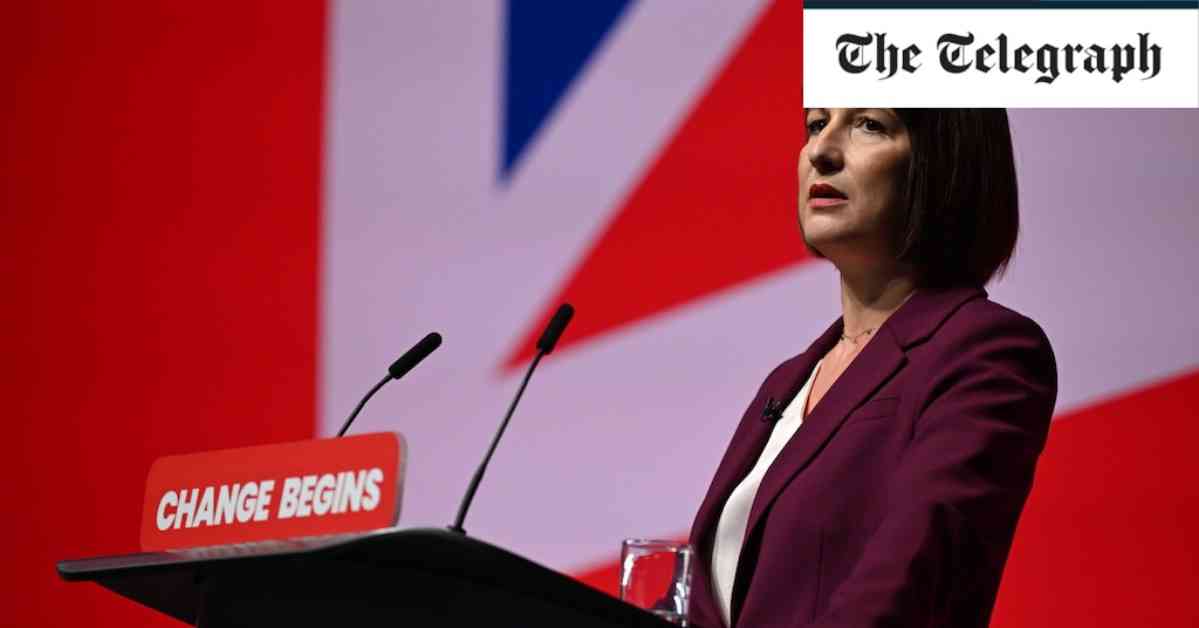Consumer Confidence Plummets Due to Reeves’ Negative Impact – Updates
As industry data continues to pour in, it is becoming increasingly clear that Rachel Reeves’ repeated references to a £22 billion black hole in the public finances are starting to take a toll on consumer confidence in the UK. The British Retail Consortium has issued a warning, stating that the negative publicity surrounding the state of the country’s finances is beginning to erode consumer trust and optimism.
With consumer confidence being a key driver of economic growth, the implications of this downturn in sentiment could have far-reaching consequences for the UK economy. As consumers become more cautious about their spending habits, businesses may start to feel the pinch, leading to a slowdown in economic activity.
Reeves’ Impact on Consumer Confidence
Rachel Reeves’ focus on the £22 billion black hole in the public finances has been a central theme in her recent speeches and interviews. While her intention may be to highlight the need for fiscal responsibility, the constant reminders of the country’s financial challenges have had the unintended effect of dampening consumer confidence.
The British Retail Consortium’s warning underscores the seriousness of the situation. As one of the leading industry groups in the UK, their assessment of the current state of consumer confidence carries significant weight. The fact that they have raised concerns about the impact of negative publicity on consumer sentiment should serve as a wake-up call for policymakers and politicians alike.
Market Reactions and Global Trends
Overnight, markets in Asia experienced a mixed reaction to the news, with shares in Hong Kong rallying more than 3% in afternoon trading. The surge in stock prices was fueled by a series of economy-boosting measures announced by the Chinese government, including cash handouts and discount vouchers for the poor.
The Chinese government’s decision to provide financial assistance to those in need ahead of the National Day holidays reflects a broader trend of governments around the world taking steps to support their economies. As global debt levels continue to rise, policymakers are under increasing pressure to find ways to stimulate growth and prevent a prolonged economic downturn.
Implications for the UK Economy
The impact of Rachel Reeves’ negative messaging on consumer confidence is not limited to the UK alone. As part of the global economy, the UK is closely connected to international markets and trends. Any significant downturn in consumer confidence in the UK could have ripple effects across the world, affecting trade, investment, and economic growth.
In order to avoid a protracted period of economic stagnation, policymakers in the UK will need to address the underlying issues that are contributing to the erosion of consumer confidence. This may involve a reassessment of government spending priorities, stronger measures to boost consumer sentiment, and a more proactive approach to addressing the country’s fiscal challenges.
In conclusion, the recent decline in consumer confidence due to Rachel Reeves’ negative impact on the public finances is a cause for concern. As the UK economy grapples with the fallout from the COVID-19 pandemic and other challenges, maintaining consumer trust and optimism will be crucial for ensuring a swift and sustainable recovery. Policymakers, businesses, and consumers alike must work together to address these issues and build a stronger, more resilient economy for the future.












